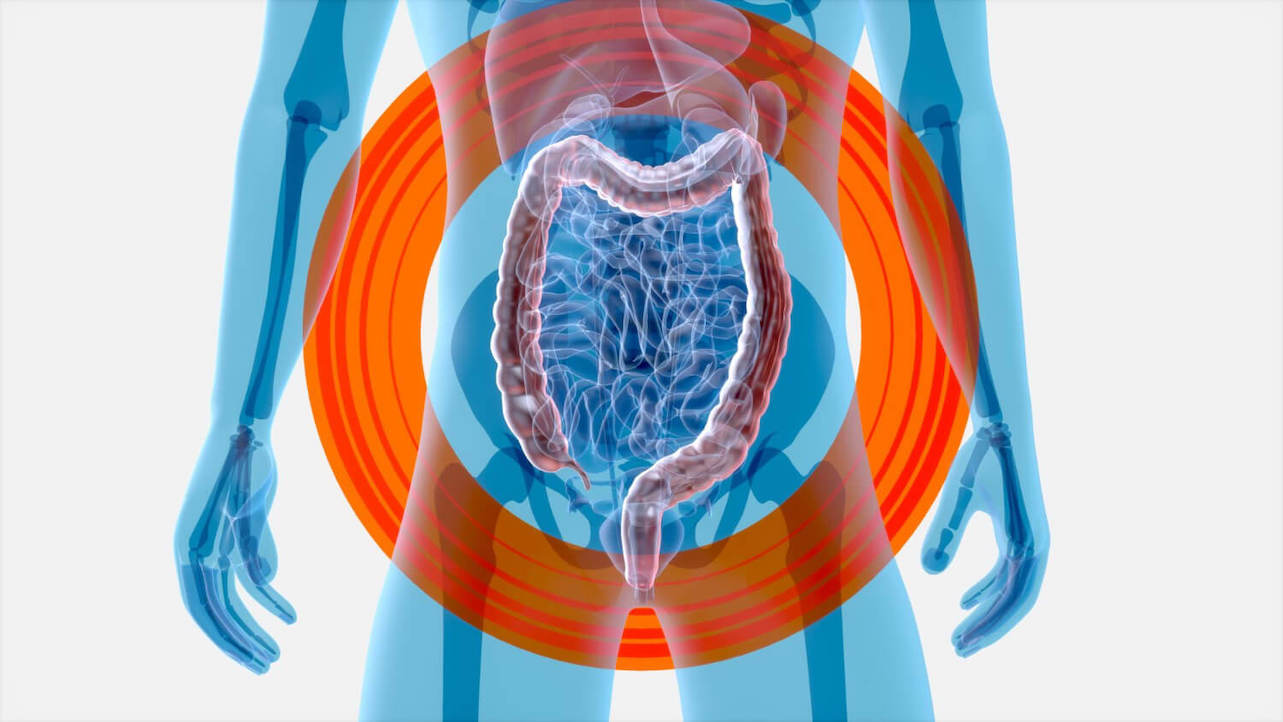The keto diet is extremely popular in North America, Europe, and Estonia. But if you're considering trying it or have already started, it might be a good idea to know what health risks it comes with and whether it's right for you.
The keto diet is based on the premise that if carbohydrates If you drastically reduce or stop consuming it, your body has to find another main source of energy. And in this case, it is fat.
The keto diet has its place
However, keto has remained a controversial topic in medical circles.
Health risks associated with keto
Bad for the kidneys
Nutritional issues
The microbiota is starving
Bad for the heart
Dangerously low blood sugar levels
Diabetes risk
Bad for bones
Increases the risk of chronic diseases and premature death
Summary
So, if you want to do the ketogenic diet right, it's not enough to just avoid carbohydrates, but fat needs to become your new primary energy source. For this to happen, at least 70% of your daily energy needs to come from burning fat.
To put this into perspective, according to the Estonian national dietary recommendations, the proportion of fat in a balanced diet should be between 25-35% of daily energy. With reduced carbohydrates, but still in a balanced menu, the proportion of fat can increase to 40%. In the case of keto, the proportion of fat is about twice this.
The keto diet has its place
The keto diet originated in a medical system where it was originally used to treat epilepsy in children. Today, this practice has been replaced by effective medications. Keto has also been used successfully for weight loss. Some studies have shown that it can be almost as effective as a low-fat diet in certain cases.
Since weight is also closely linked to type 2 diabetes, the Keto diet has had some short-term success in this area as well. It has helped control blood sugar levels and increase insulin sensitivity. There are many studies in this area with conflicting results.
Some studies have suggested that the ketogenic diet may be helpful in treating heart disease, certain types of cancer, Alzheimer's, and Parkinson's disease, but these are still areas of little research.
However, keto has remained a controversial topic in medical circles.
Despite these positive results, people in the health field are polarized about the healthiness of the ketogenic diet.
Some experts say the ketogenic diet should only be used under medical supervision and for a limited period of time because it could do more harm than good. Others fear that its growing popularity could become another fad diet that desperate weight-loss junkies will follow. However, for some experts, the benefits clearly outweigh the potential problems.
Health risks associated with keto
The keto diet as a fad is a relatively new thing, but thanks to its long history of fighting epileptic seizures, the side effects are relatively well documented.
The short-term side effects of keto are generally well-known. They include nausea and vomiting, constipation or diarrhea, headache, fatigue, irritability, difficulty concentrating and brain fog, weakness, muscle cramps and soreness, dizziness, stomach pain, trouble sleeping, and sugar cravings. These flu-like symptoms are also collectively called the keto flu. They usually last from a week to a month, and I won’t dwell on them.
For a long time for the keto diet However, staying faithful comes with some significant health risks, such as:
- weaker bones,
- excessively fatty liver,
- kidney stones,
- micronutrient deficiency
- and much more.
I will take a closer look at the most important of these risks.
Bad for the kidneys
The keto diet can be associated with low electrolyte and fluid levels, which, combined with increased urination, can lead to a loss of important electrolytes, such as sodium, magnesium and potassium, too much of it, which in turn makes the kidneys vulnerable to serious damage.
Dehydration, or lack of fluids, can cause dizziness, kidney damage, or kidney stones. It can cause heart arrhythmias, as electrolytes are essential for the heart to function properly. An irregular heartbeat is serious and can be fatal.
Additionally, large amounts of eggs, meat, and cheese increase the risk of kidney stones. But these high-fat foods are the main sources of energy on the keto diet, as they contain no carbohydrates.
Consuming large amounts of animal foods makes urine more acidic, and thus more of it is excreted from the body in the urine. calcium, which is associated with a higher risk of kidney stones.
People with chronic kidney disease should definitely avoid the keto diet, as it can worsen the condition. In general, people with kidney disease are advised to follow a low-carb diet. protein-rich menus. Keto, on the other hand, is medium to high in protein.
Nutritional issues
Several experts have raised the question of how consuming such large amounts of unhealthy fats as keto requires affects health in the long term?
The keto diet is very low in certain healthy fruits, vegetables, grains, and legumes. Without them, you could be missing out on important nutrients. fiber, vitamins, minerals and phytonutrients, which can only be obtained from these foods. In the long term, this leads to bone loss and a higher risk of chronic diseases.
Ketogenic dieters have been documented to have 17 micronutrient deficiencies. Children have been diagnosed with scurvy and several have died from selenium deficiency. Several studies have specifically highlighted calcium, Vitamin D, magnesium and phosphorus deficiency.
One study that looked at the nutritional composition of modern diets found that very low-carb diets like Atkins, which is very similar to the ketogenic diet, only contain 12 of the 27 vitamins and minerals the body needs to get from food.
There are also hundreds of studies that confirm that a plant-based, whole food diet significantly reduces the risk of Alzheimer's, heart disease, and type 2 diabetes.
The microbiota is starving
It is true that the lack of minerals and vitamins can be compensated with supplements. But how to replace prebiotics (8 different types fiber), which is abundantly contained in whole grains and legumes and which is food for our gut microbes?
It’s no wonder that constipation is one of the most common side effects of the keto diet. But starving your microbiota has a whole host of negative consequences beyond constipation. Among other things, ketogenic diets have been found to reduce the diversity of our microbiota. Which, in turn, is linked to weight gain.
And it's not just about the fiber, which is also offered in capsules. It has been found that about 71% of dietary fat, especially saturated fatty acids (which we get mainly from animal products), reaches the large intestine, influencing the gut biota in a way that increases obesity and chronic inflammation risk.

Bad for the heart
And how do all those saturated fats that ketogenic dieters consume in large quantities affect the heart? A meta-study that analyzed data from four large studies that lasted at least a year found that those on low-carb diets died significantly earlier.
Specifically, the risk of cardiovascular disease depends on the type of dietary fat consumed. Namely, consumers of low carbohydrates and animal fats and proteins are 50% more likely to die from cardiovascular disease. However, no such association was found between low carbohydrate intake and excessive consumption of vegetable fats and heart disease.
Dangerously low blood sugar levels
Very low-carb diets have been shown to be effective in controlling blood sugar levels in people with diabetes. However, in people with type 1 diabetes, they can cause blood sugar levels to drop too low more often. Signs of hypoglycemia include confusion, tremors, drowsiness, and sweating, which can lead to coma and death.
In a two-year study of 11 adults with type 1 diabetes, hypoglycemia episodes occurred on average almost once a day. Hypoglycemia is caused when a diabetic doesn’t eat enough carbohydrates and takes too much insulin. So the low-carb keto diet may increase the risk of hypoglycemia.
Diabetes risk
The keto diet does lower blood sugar levels, but the problem for diabetics is not high blood sugar levels, but a lack of insulin or its inability to control blood sugar levels. Eating only fat keeps blood sugar levels low, but makes the disease worse. How is that?
As early as December 1927, Shirley Sveeney published research showing that a ketogenic diet significantly increases glucose intolerance in just a few days. A week on a high-fat diet and you can increase your blood sugar swings fivefold while eating the same amount of carbohydrates as the week before.
It is possible to treat type 2 diabetes with sufficient weight loss, but by choosing the keto diet as a weight loss method, you are simply adding fuel to the fire and making your disease worse.
A large meta-analysis that looked at several large, long-term low-carb and ketogenic diets and their effects on healthy people with type 1 and type 2 diabetes found that the ketogenic diet is not suitable for everyone. But what's more, the researchers point out that the keto diet is definitely not suitable for people with type 2 diabetes, because the fatty acid profile it comes with increases the risk of cardiovascular disease.
The reason why keto proponents claim that they can cure type 2 diabetes is that you can get off your diabetes medication while on the keto diet. This is for the simple reason that you don't eat carbs and your blood sugar stays very low. But the disease hasn't gone away. Insulin resistance is still there. However, with a healthy, balanced diet, it is possible to completely reverse type 2 diabetes.
Bad for bones
The International Society of Sports Nutrition states in its official statement that ketogenic diets negatively affect performance, both in low- and high-intensity exercise.
For non-athletes, ketosis can increase perceived exertion and fatigue, which in turn makes physical activity more unpleasant. The keto diet has a negative effect on endurance athletes and bodybuilders alike. The reason is a decrease in muscle mass.
But how does ketosis affect bone density? It turns out that in addition to losing muscle mass, the keto diet also causes bone density loss. The reason is thought to be that ketosis creates acidosis, or a state of acidosis, in the body. Ketones are acidic and cause a mild metabolic acidosis.
A study of 29 children with epilepsy found that after switching to a ketogenic diet, bone mineral density decreased in 68%. Another study found that blood markers of bone loss increased in those following the keto diet after just 3.5 weeks of starting the diet.
Increases the risk of chronic diseases and premature death
The effect of the keto diet on chronic diseases such as heart disease and cancer is still a controversial topic and the mechanisms are not yet fully understood.
Some studies suggest that diets high in fat and low in carbohydrates, based on animal foods, are associated with health risks, while diets based on plant fats and proteins are more likely to be beneficial.
A long-term study that looked at 130,000 adults linked a low-carbohydrate diet based on animal foods to an increased risk of dying prematurely from heart disease, cancer, or other diseases.
Summary
While the keto diet is associated with weight loss and other benefits, especially in the short term, in the long term it can lead to serious nutrient deficiencies, digestive problems, weak bones, and other health problems.
Ultimately, in medicine, it all comes down to whether the potential benefits outweigh the risks. If you suffer from epilepsy that is not responsive to medication, but the ketogenic diet would help, and the alternatives are even more devastating, then the positives of keto may outweigh the negatives. But for those who simply want to shed some extra pounds, other alternatives should definitely be considered.

Allan Randlepp
NutritionistAllan is a nutritionist and trainer whose favorite topics are lifestyle and longevity, including nutrition and physical activity.
Estonians eat too little fiber





